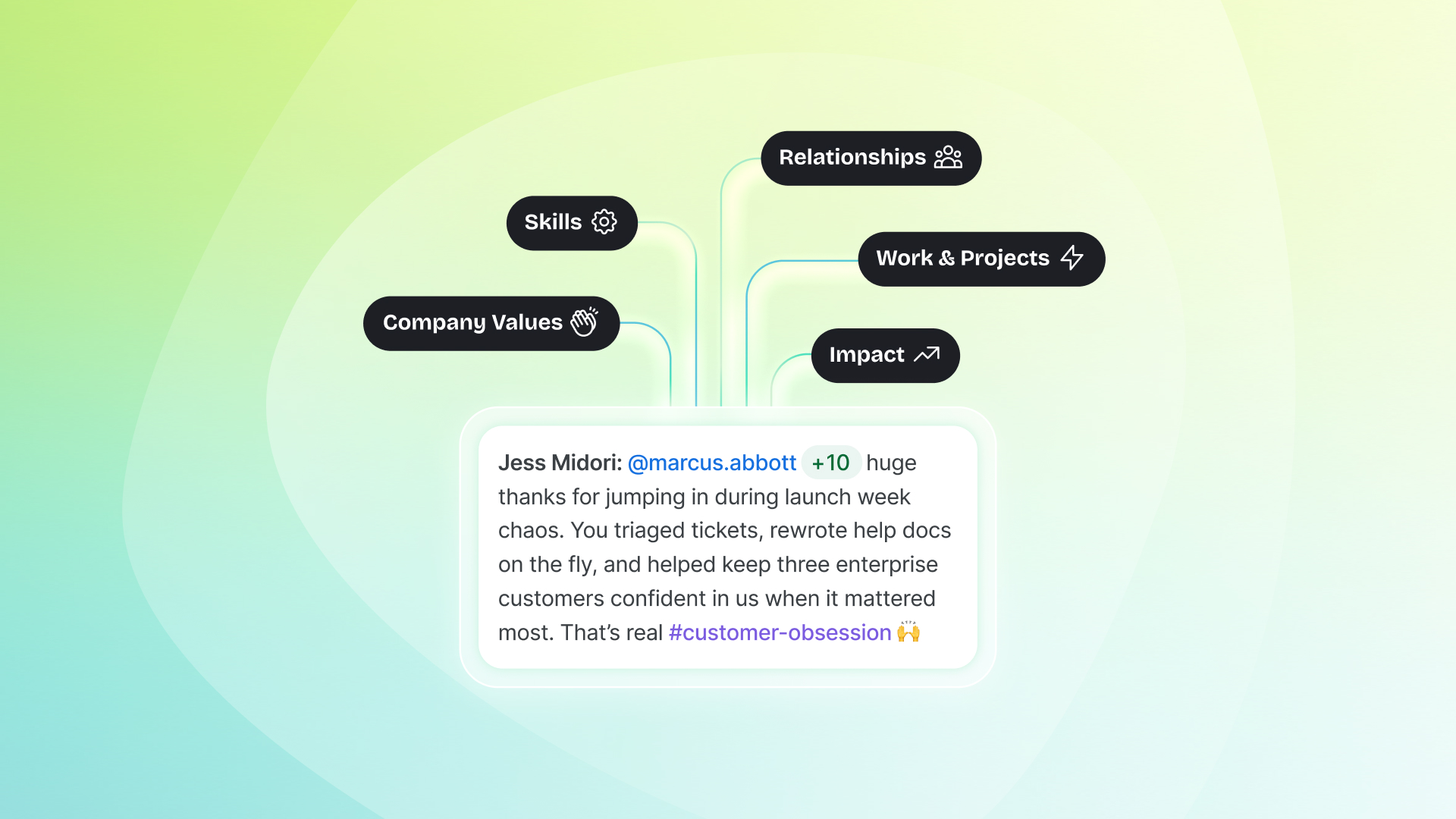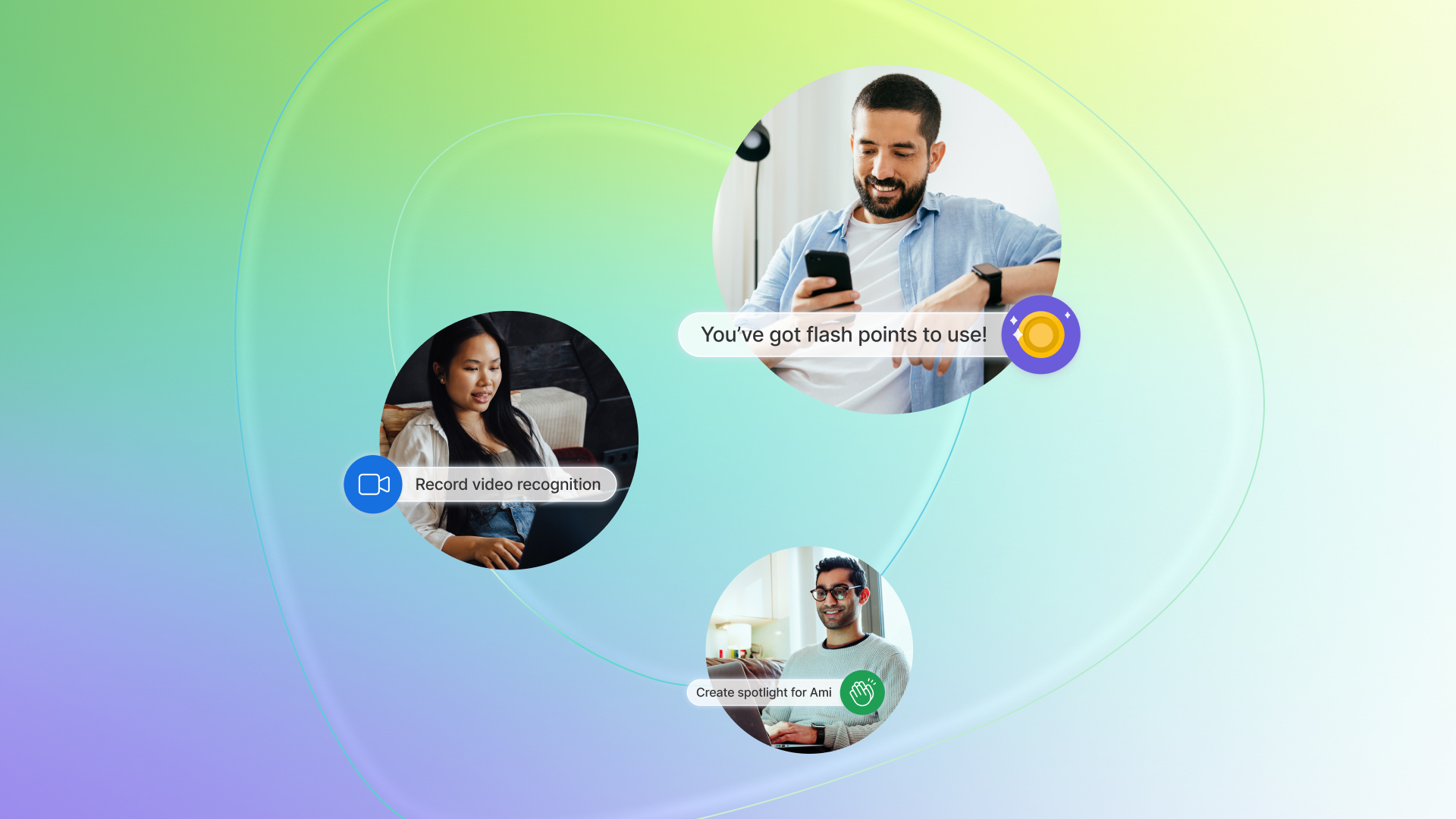How to Celebrate Asian American and Pacific Islander Heritage Month at Work

At Bonusly, we’re strong believers in bringing our full selves to work—including our ethnic and racial backgrounds. Not only that, but we like to celebrate it. Recognizing and celebrating employees’ racial, ethnic, and cultural backgrounds can be effective in building psychological safety and employee engagement!
If your leadership team or key stakeholders need a bit of a nudge to embrace diversity, equity, and inclusion, download this fact sheet for some of the most compelling DE&I statistics around.
The beginning of May signals a month-long celebration of the many, many, cultural backgrounds that make up the Asian American and Pacific Islander (AAPI) identity. AAPI Heritage Month is a great opportunity to have fun, learn about your colleagues, and educate yourself!
Understand the origins of AAPI Heritage Month
In 1976, congressional staffer Jeanie Jew witnessed the United States’ bicentennial celebration (it’d been 200 years since the Declaration of Independence was signed) and was troubled by the lack of recognition for AAPI contributions. Her great-grandfather, M.Y. Lee, had immigrated to the United States in the 1800s to help build the transcontinental railroad—a tremendous accomplishment that was blighted by violent anti-Asian discrimination and the introduction of the Chinese Exclusion Act of 1882.
She’d mentioned her concerns to New York Congressman Frank Horton, and it took until 1992—more than 15 years later—before the legislation to permanently designate May as AAPI Heritage Month passed through Congress.
“The revelations about Mr. Lee and the story of Asian Americans led [Jeanie Jew] to believe that not only should Asians understand their own heritage, but that all Americans must know about the contributions and histories of the Asian-Pacific American experience in the United States.”
–New York Congressman Frank Horton
So, why May? It commemorates the first Japanese people to immigrate to the United States, on May 7, 1843, and also is a nod toward the May 10, 1869 completion of the same transcontinental railroad that Jeanie Jew’s own grandfather had worked on.
Now, 23 million Asian American and Pacific Islanders trace their roots to more than 20 countries in East and Southeast Asia and the Indian subcontinent, each with their own unique histories and cultural practices. There’s a lot to cover—here are a few ways to get started.
To see a list of the other best workplace holiday celebrations by month with guides to help you plan in advance, check out our recommended calendar.
Learn about AAPI populations
Often seen as a monolithic “model minority,” we should first understand that “Employment and economic status among members of the AAPI community are also far from uniform: While some AAPI subpopulations are heavily concentrated in higher-wage professional and management occupations, others are heavily concentrated in lower-wage service occupations.”
This danger of a single story rears its head here. The AAPI community consists of more than 50 ethnic groups, grouped together as a demographic purely because of vague geographic borders; it’s impossible to capture a singular “Asian-American experience.” Instead, the following ideas and resources are meant to capture the diversity of narratives and stories present in the AAPI community.

Read a book by an AAPI author
There’s nothing like diving into new experiences through a great book. Host a book club with your team members, and learn together!
Some of our favorite books by AAPI authors include:
The Making of Asian America: A History, Erika Lee
Minor Feelings: An Asian American Reckoning, Cathy Park Hong
Asian American Dreams: The Emergence of an American People, Helen Zia
The Sympathizer, Viet Thanh Nguyen
How to Pronounce Knife, Souvankham Thammavongsa
Time is a Mother, Ocean Vuong
The Island of Sea Women, Lisa See
Sour Heart, Jenny Zhang
Pin Ups, Yi Shun Lai
Pachinko, Min Jin Lee
Oh My Mother!, Connie Wang

Watch a movie by an AAPI director
There are excellent movies out there that explore the multiplicity of the AAPI experience. At Bonusly, we often host movie screenings (virtually, for now!) as a way to learn about our cultures and spend time together.
Nomadland (2020) Chloé Zhao
Minari (2020). Lee Isaac Chung
Saving Face (2005) Alice Wu
The Farewell (2019) Lulu Wang
Always Be My Maybe (2019)Nahnatchka Khan
Bitter Melon (2018), H.P Mendoza
Who Killed Vincent Chin? (1987) Christine Choy
Tigertail (2020) Alan Yang
Meet the Patels (2015) Ravi Patel, Geeta Patel
Minari (2021), Lee Isaac Chung
Enjoy AAPI cuisine
We’ve said it before, and we’ll say it again—eating and drinking is one of our favorite ways to get to know a culture better. Here are a few different ways to enjoy and learn about AAPI cuisine:
- Order lunch from a local AAPI restaurant
- Take an in-person or virtual cooking class
- Experience a Japanese tea tasting or ceremonial matcha workshop
- Grab bubble tea
- Explore your local AAPI grocery store for snacks

Participate in work discussions
For a lightweight way to learn and discuss, Bonusly likes to post a prompt in the beginning of the week—typically a short video or article—with some questions to get everyone thinking. Team members are free to discuss and chat about what was striking, surprising, or new to them.
Here are some media we’re planning to talk about:
- The Limits of the Lunchbox Moment (essay)
- Growing Up South Asian Post 9/11 (video)
- Do All Asian Americans Think the Same? (video)
- What You Don’t Know (This American Life podcast episode)
- Celebrating History at the Oscars! (Shoes Off Inside episode)
Make a contribution to an AAPI nonprofit
Donating to an organization that advances AAPI issues is a great way to tangibly support the AAPI community. Here are a few to applaud, research, and donate to:
Asian Americans Advancing Justice (AAJC)
Fighting for civil rights and empowering Asian Americans to create a more just America for all.
South Asian Americans Leading Together (SAALT)
SAALT’s vision is to help build a South Asian American community with shared values that uplift all people of color, and will cross lines of race, caste, gender, sexuality, and religion to abolish systems of oppression and achieve collective liberation.
Asian Mental Health Collective
Asian Mental Health Collective seeks to raise awareness about the importance of mental health care, promote emotional well-being, and challenge the stigma concerning mental illness amongst Asian communities worldwide.
Sikh American Legal Defense and Education Fund
National Asian Pacific American Women’s Forum (NAPAWF)
Our mission is to build collective power with AAPI women and girls to gain full agency over our lives, our families, and our communities.
A grassroots collective of Asian & migrant sex workers, organizing transnationally.
Stop AAPI Hate began as a reporting center to track and analyze incidents of hate against Asian Americans and Pacific Islanders in the wake of the COVID-19 pandemic. Through our reports and advocacy, we have raised national awareness about the issue of anti-Asian hate.
Host a speaker from your local AAPI coalition
Chances are, you have a local organization that's working hard to advance the AAPI community and pursue justice in your area. They're your experts—why not invite them to speak at your company about the unique issues your city is tackling? It's a great way to build stronger relationships in the community you reside in. Google around for who's present in your area—this list is also a good place to start.

Next steps
Has this post sparked inspiration? Tell us in the comments below, or check out these additional Diversity, Equity, and Inclusion resources from Bonusly:
- 11 Diversity & Inclusion Statistics That Will Change How You Do Business
- It's Our Responsibility as HR Professionals to Address Racial Injustice
- Why Employee Recognition is Crucial to Inclusion
- Something for everyone: The benefits of offering inclusive employee rewards







